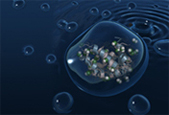 |
|
 |
|
Mutrient-sensing mechanism: the mammalian target of rapamycin (mTOR) |
- Stress response: heat shock proteins and global chaperone network (HSR)
The molecular chaperone-mediated stress response is a highly conserved mechanism in all organisms and plays a central role in protecting cellular homeostatic processes from environmental and physiological insult. In mammals, the nodal regulator of the stress response is the heat shock transcription factor (HSF1), whose activation status is largely governed by the balance between the amount of misfolded proteins and the chaperone availability in the cell. When the HSF1-mediated stress response is impaired, the accumulated misfolded proteins will quickly exceed the capacity of molecular chaperones and the cell collapses easily.
|
|
We are interested in the cellular adaptation to environmental stress, including nutrient deficiency and nutrient overload. By disrupting molecular chaperone network using genetic approach, we are investigating the adaptive stress response at the cellular and organismal levels.
|
Protein quality control: ubiquitin/proteasome system (UPS) |
|
|
 |
|



